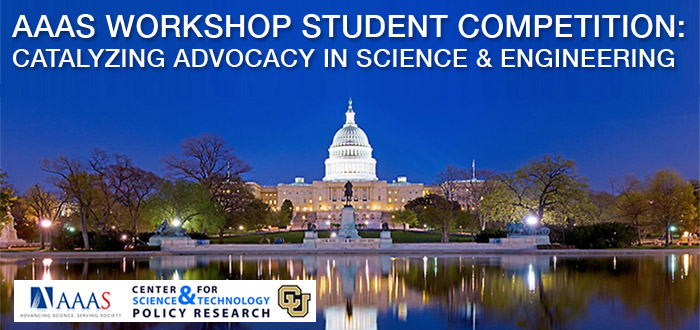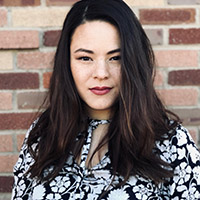
American Association for the Advancement of Science
"Catalyzing Advocacy in Science and Engineering" Workshop Student Competition
Reflections from the AAAS “CASE” Workshop
Danielle Lemmon
Atmospheric and Oceanic Sciences, University of Colorado Boulder
 The AAAS Catalyzing Advocacy in Science and Engineering student workshop synthesized science policy issues, legislative processes, politics, and science advocacy into 3 intensive, exciting days. The opportunities to speak with our local policy makers, to practice mock appropriations processes, to discuss policy issues candidly, and to put sticky notes on Alexandria Ocasio-Cortez’s wall made the event an experience I will never forget. The take home message I took away from this year’s workshop was that in order to pass legislation and make a real difference, you need to align your politics, policy, and procedure.
The AAAS Catalyzing Advocacy in Science and Engineering student workshop synthesized science policy issues, legislative processes, politics, and science advocacy into 3 intensive, exciting days. The opportunities to speak with our local policy makers, to practice mock appropriations processes, to discuss policy issues candidly, and to put sticky notes on Alexandria Ocasio-Cortez’s wall made the event an experience I will never forget. The take home message I took away from this year’s workshop was that in order to pass legislation and make a real difference, you need to align your politics, policy, and procedure.
Even though I already study science and technology policy with Center for Science Technology Policy Research (CSTPR) graduate certificate program, there was an invaluable benefit to hearing from speakers whose boots were on the ground in Washington DC. As Judy Schneider, a Congressional specialist, pointed out: all of the concepts in the national discourse are large, complicated subjects like healthcare, climate change, affordable housing, drug pricing, immigration, etc. However, all of these issues differentially impact states which is why it is important to align local policies, local politics, and local procedures as you advocate for more science funding to your representatives. This idea of grounding policy, politics, and procedure locally certainly helped the Colorado delegation advocate effectively!
I feel gratification in contributing a unique perspective and voice, and humbled in hearing others journeys to DC. One Latina scientist I met in particular shared her perspective on how immigration policy intersects with science policy: “You can’t do science if you’re afraid your family is getting deported.” Not only did she petition her state lawmaker to continue to support NSF, NASA, NOAA and other federal research agencies, but she also kindly reminded that DACA protections were as important to supporting scientific communities of color. As another graduate student of color, I recognize that we need to align our progressive science policies with immigration politics and procedures.
The hardest concept I am struggling with post-workshop is what does it mean to be a science policy advocate? Some science policy scholars might cite Roger Pielke Jr.’s The Honest Broker and encourage the scientist divest from advocacy in hopes of preserving the “integrity” of the rationale scientist; and we were given this Pielkean advice by both staffers and panelists. But where does that leave scientists like the previous student, who are affected by policies that to the privileged seem “irrelevant” to science policy? While the Pielkean thought has merit in that scientists need to be cautious with their political discourse, is the flip side more unnecessary civility politics for scientists of color? In attending the CASE workshop, I am happy that I was able to reflect critically about intersectional science advocacy with peers and mentors.
I am grateful for the support of the CSTPR and the Center for STEM Learning in sending me to the CASE workshop. Additionally, I would not have been able to explore and learn about the science policy world without the unwavering support of my advisor, Dr. Kristopher Karnauskas.
